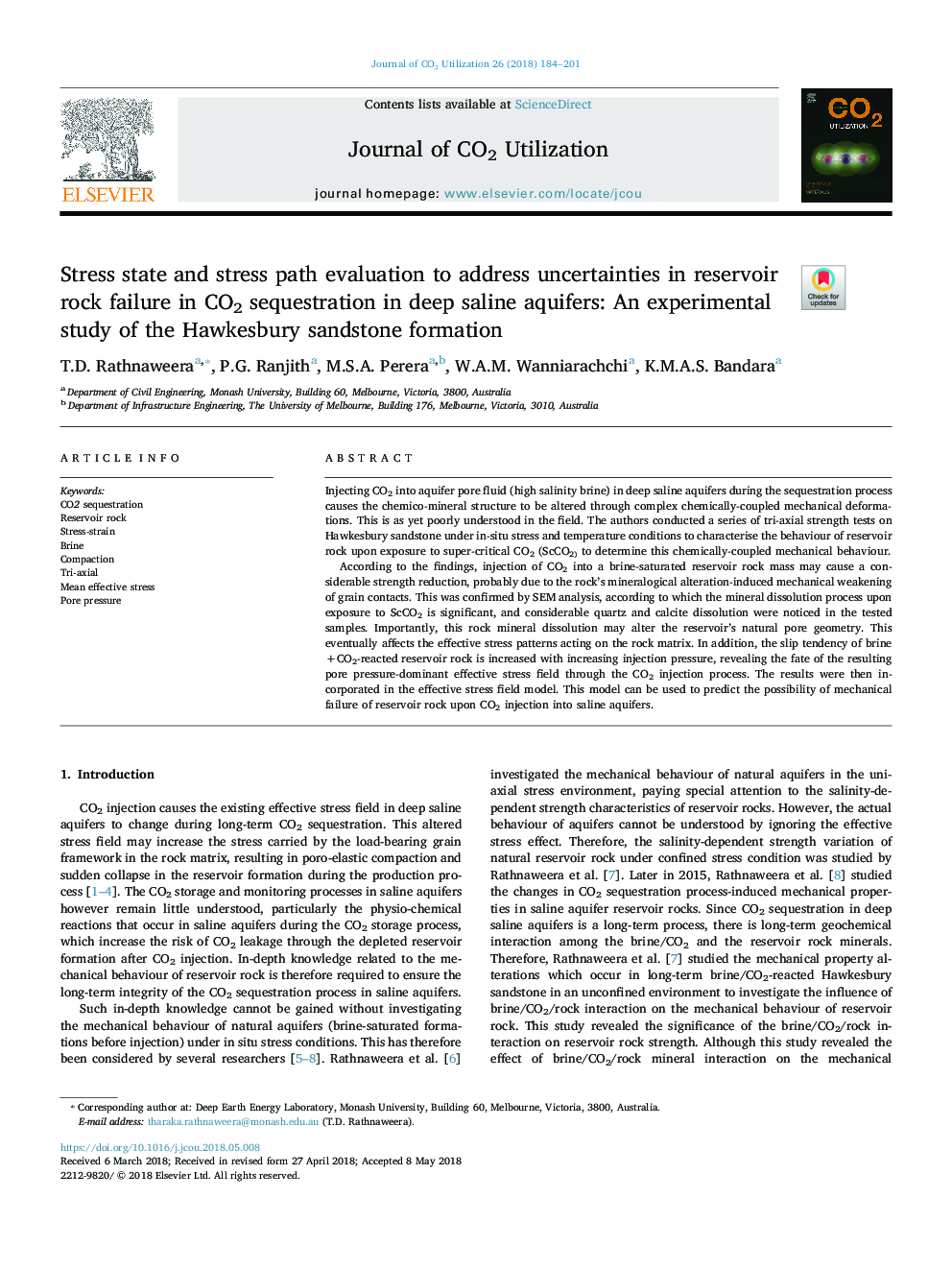| Article ID | Journal | Published Year | Pages | File Type |
|---|---|---|---|---|
| 6528441 | Journal of CO2 Utilization | 2018 | 18 Pages |
Abstract
According to the findings, injection of CO2 into a brine-saturated reservoir rock mass may cause a considerable strength reduction, probably due to the rock's mineralogical alteration-induced mechanical weakening of grain contacts. This was confirmed by SEM analysis, according to which the mineral dissolution process upon exposure to ScCO2 is significant, and considerable quartz and calcite dissolution were noticed in the tested samples. Importantly, this rock mineral dissolution may alter the reservoir's natural pore geometry. This eventually affects the effective stress patterns acting on the rock matrix. In addition, the slip tendency of brine+CO2-reacted reservoir rock is increased with increasing injection pressure, revealing the fate of the resulting pore pressure-dominant effective stress field through the CO2 injection process. The results were then incorporated in the effective stress field model. This model can be used to predict the possibility of mechanical failure of reservoir rock upon CO2 injection into saline aquifers.
Related Topics
Physical Sciences and Engineering
Chemical Engineering
Catalysis
Authors
T.D. Rathnaweera, P.G. Ranjith, M.S.A. Perera, W.A.M. Wanniarachchi, K.M.A.S. Bandara,
